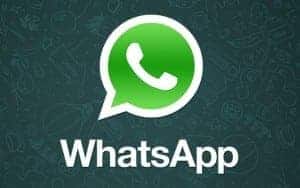
The $17.8 billion Facebook deal for WhatsApp was brokered over a plate of chocolate strawberries.
WhatsApp co-founder Jan Koum crashed a Valentine’s Day dinner that Facebook founder Mark Zuckerberg planned for his wife Priscilla Chan last year, eager to discuss a tie-up between their two companies.
The negotiations rumbled on as the pair snacked on Ms Chan’s chocolate-covered strawberries and culminated in Facebook buying WhatsApp for a staggering $A17.82 billion.
The deal, confirmed Thursday, makes instant billionaires of Mr Koum and WhatsApp co-founder Brian Acton.
Not a bad return for a company the pair, both former Yahoo engineers, formed less than five years ago.
Especially not bad for Mr Acton, who in 2009 was turned down for a job at Facebook.
He tweeted not long after that rejection: “Facebook turned me down. It was a great opportunity to connect with some fantastic people. Looking forward to life’s next adventure.”
The money Facebook paid for WhatsApp, the popular instant messaging service, is truly eye-watering and equivalent to almost four-times Australia’s current annual overseas aid budget.
But Australian analysts believe it makes sense, especially amid reports that younger users are leaving Facebook in their droves in favour of services like WhatsApp and Snapchat, which Facebook also offered to buy last year.
“The social media space is becoming increasingly fragmented so it does make sense for Facebook to consolidate its position,” said Zambian-born Australian tech entrepreneur Colin Fabig, founder of the spring.me social media site.
“I think their strategy now is `okay we’ve got a lot of money now, we can afford to acquire our competitors – Google did the same with YouTube.
“Everyone said at the time `my God, one billion dollars (that Google paid for YouTube – it actually paid $US1.65 billion) is a lot of money’, but look at it now, it was well worth it.”
Facebook’s deal bolsters the world’s biggest social network by adding the 450 million users of WhatsApp, which will be operated independently with its own board.
It is Facebook’s biggest acquisition and comes less than two years after Mark Zuckerberg’s company raised $US16 billion in the richest tech sector public stock offering.
The purchase includes $US12 billion in Facebook shares and $US4 billion cash.
It calls for an additional $US3 billion in restricted stock units to be granted to WhatsApp founders and employees that will vest over four years.
“The acquisition supports Facebook and WhatsApp’s shared mission to bring more connectivity and utility to the world by delivering core internet services efficiently and affordably,” said a Facebook statement.
Facebook tried to acquire Snapchat, also an instant messaging service, for $US3 billion last year.
“WhatsApp is on a path to connect one billion people. The services that reach that milestone are all incredibly valuable,” said Zuckerberg, Facebook founder and chief executive.
“I’ve known (WhatsApp founder) Jan (Koum) for a long time and I’m excited to partner with him and his team to make the world more open and connected.”
WhatsApp is a cross-platform mobile app which allows users to exchange messages without having to pay telecom charges.
“Almost five years ago we started WhatsApp with a simple mission: building a cool product used globally by everybody. Nothing else mattered to us,” Koum said in a blog post.
By Miles Godfrey, AAP











